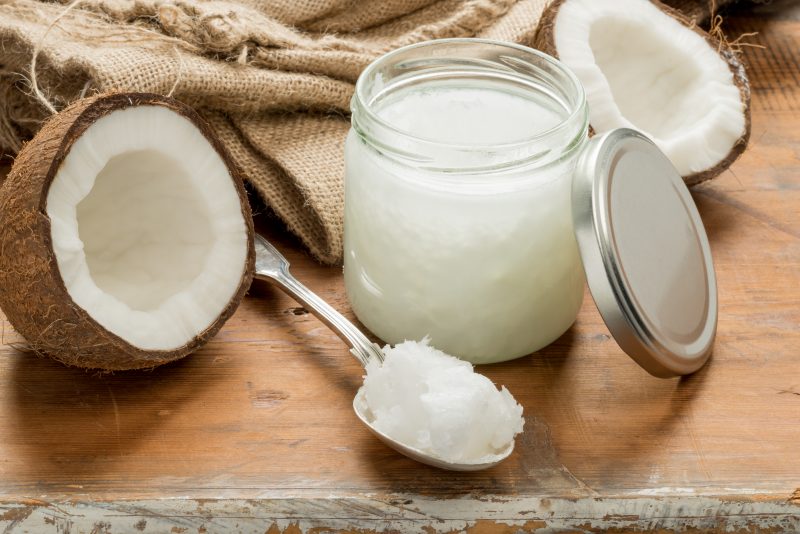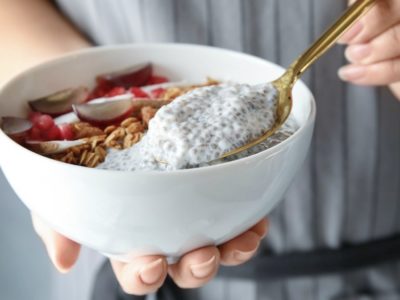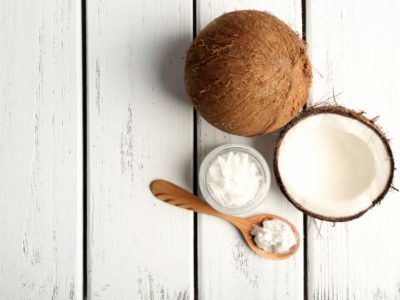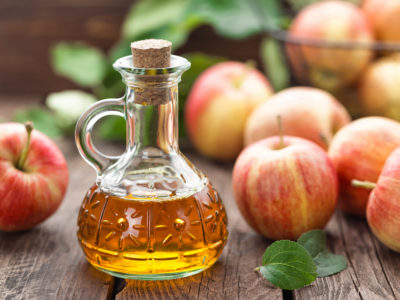Table of Contents[Hide][Show]
Coconut oil has been celebrated for its medicinal benefits for thousands of years and the popularity of this superfood continues to prove itself as a wonder for both the brain and body. With over 1,700 studies exclaiming coconut oil’s benefits, where does one begin on the journey to better health by way of MCT’s? Let’s dive into the straight facts (what on earth is an MCT anyway?), why it’s good for us, and how we can implement the unique properties of coconut oil into our lives.
Coconut Oil At a Glance: What Does Science Say It’s Good For?
- Increases fat loss. In fact, 92% of coconut oil is made up medium chain fatty acids, the type of fat body can burn as energy.
- Reduces Alzheimer’s symptoms.
- Helps wounds heal faster as it increases collagen production on skin.
- Acts as a natural antibiotic and kills yeast and candida.
- Boosts testosterone and balances hormones.
- Improves heart health and reduces LDL (the “bad”) cholesterol.
Related
7 Great Low Cholesterol Recipes You Can Enjoy At Any Age
These tasty low cholesterol recipes can help keep your heart healthy and your tummy full!
What Does MCT Really Mean?
First of all, MCT stands for Medium Chain Triglycerides. Chemically, they get the name from their medium-length tails which are anywhere from 6 to 12 carbons long. There are four different types of MCT’s and they each do different things for the body.
- C6 (Caproic acid): Capra is latin for goat (which is appropriate as it tastes and smells like goat). It can also cause digestive issues, even in tiny doses. Many MCT brands out there contain 1-2% of C6, but it will not read so on the label because of the small amount. How can you tell if it’s in there then? You will either notice a burning sensation in your throat or could even get diarrhea.
- C8 (Caprylic acid): Brands like Bulletproof make Brain Octane Oil which are made from 100% caprylic acid, are triple distilled, and only comes from coconut oil (and not palm oil which most C8’s come from). It also converts to ketones within minutes, which suppresses hunger and fuels the brain. This means more ketones and less digestive distress.
- C10 (Capric acid): It’s not as potent as Caprylic acid (takes longer to raise ketones as it has 10 carbons instead of 8). You can still get a great mental and metabolic boost from it, though.
- C12 (Lauric acid): It behaves like a long chain fatty acid in the body, but it’s not actually an MCT. It’s actually half of the fat that’s in coconut oil and much less expensive. Is it bad for you? No. In fact, Lauric acid is abundant in a common jar of coconut oil, and it’s super antimicrobial too. Pro-tip: Get your daily dose of antiviral goodness with a tablespoon of coconut oil a day.

How Is Coconut Oil Different?
Simply put, coconut oil contains different strains of MCT’s and is marked by its abundance in Lauric acid. The body behaves differently towards it, and while Lauric acid is a chemical MCT, the body does not treat it like one. There are several types of fatty acid oils found in coconut oil that behave as MCT’s: caprylic acid (6% of coconut oil), capric acid (9% of coconut oil), and the lauric acid which is 50% of coconut oil.
Is MCT Right For Me?
When it comes to choosing the right MCT supplement or coconut oil brand, knowing what benefits you want and how you would apply it to your lifestyle are great ways to get started.
After researching the right MCT brand (one that is made purely and ethically), determine how you would implement it into your daily habits. These oils can be blended into teas, coffee, and smoothies, so it really boils down to personal preference. MCT’s are more potent than your standard jar of coconut oil, so supplementing with them on a regular basis is a major upgrade for your supplement cabinet or weight-loss tactics.
Coconut oil is a wonderful staple to any pantry. Its versatility is marked by its body care abilities, medicinal qualities, and it’s a useful cooking ingredient too.
Should you choose an MCT oil over coconut oil? There is no right answer—it’s about what works best for your unique body. If you are having trouble deciding over one or the other, why not add both to your routine?
You May Also Like…





